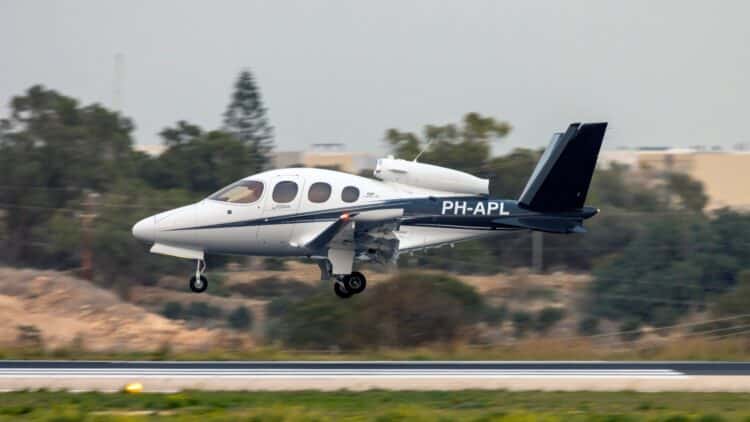The aviation world has just lost one of its most promising competitors. It is not a commercial airline, but a private aviation company. We are talking about Verijet, a charter jet operator that promised to revolutionize luxury air travel. A company that appeared to be the darling of the skies has just closed overnight.
Verijet declared bankruptcy in October 2025, immediately canceling all its flights and leaving both customers and creditors with debts that it seems unlikely to pay off anytime soon. If there is one thing we can learn from this news, it is not to buy vouchers for bulk flight services. Most customers had paid about US$10.5 million in advance for services that they will obviously no longer receive. When will they get their money back? It seems that it will not be anytime soon.
Verijet: luxury amid the pandemic
This airline was created in 2020, a difficult year for the aviation industry. Its founder, Richard Kane, launched the company in the midst of the COVID-19 pandemic. At that time, the general public was looking for alternatives to crowded commercial flights. And no matter how much we were told about quarantines, people continued to travel freely (if they had enough money for a private flight, of course).
That’s where Verijet positioned itself as the solution for private air travelers, who didn’t care about the pandemic. The company presented an image of democratizing the luxury of private travel, supposedly making it more accessible and efficient. You could travel in a private jet without having to own one like a billionaire. It was the “budget” version of flying like the jet set.
How did Verijet work?
Verijet chose its fleet very carefully: it operated exclusively with single-engine Cirrus SF50 Vision jets. These aircrafts, with modern technology and low operating costs, were a very good alternative to traditional jets.
The business model was based on the sale of “jet cards.” It was essentially a prepaid contract: customers paid for flight hours in advance and then used them at a fixed hourly rate. The scheme worked, and the company died of success; its expansion was meteoric, and perhaps its Achilles’ heel.
By 2023, Verijet had climbed the ranks too quickly. It was ranked as the 13th largest charter and fractional flight operator in the United States. It had found the perfect private niche and was one of the best competitors. It focused on short-haul regional flights between different locations in the United States. But Richard Kane’s mission knew no bounds. In 2023, the airline launched itself onto the international market, opening key routes in the Caribbean; it visited the Bahamas and also flew to the Dominican Republic. Because they were private passengers, there is no data on how many passengers per year used the airline.
Bankruptcy and unsustainable debt
“The sky’s the limit,” but perhaps Richard Kane sinned like Icarus and flew too close to the sun. The company seemed to be going like a rocket, but the financial reality was quite different. Verijet’s collapse was not a crisis, but a long-announced crash. No matter how good the business model seemed at first, the financial management was unsustainable. The company grew by using money prepared by customers, creating a huge floating liability. Instead of keeping these funds as reserves, Brigette invested them in further growth.
By the time the company went bankrupt, it was already carrying $38.7 million in liabilities. Its assets, on the other hand, only amounted to bonds worth $2.5 million. Most of these came from an insurance claim. This lack of cash liquidity was its downfall. The biggest drama falls on the customers who had paid with their “jet cards.”
Verijet owes 81 customers who had paid for non-existent flight hours no less than $10.5 million. Some customers had individual balances exceeding $450,000. So remember, the next time you are offered a prepaid service, be suspicious… it is usually too good to be true.

